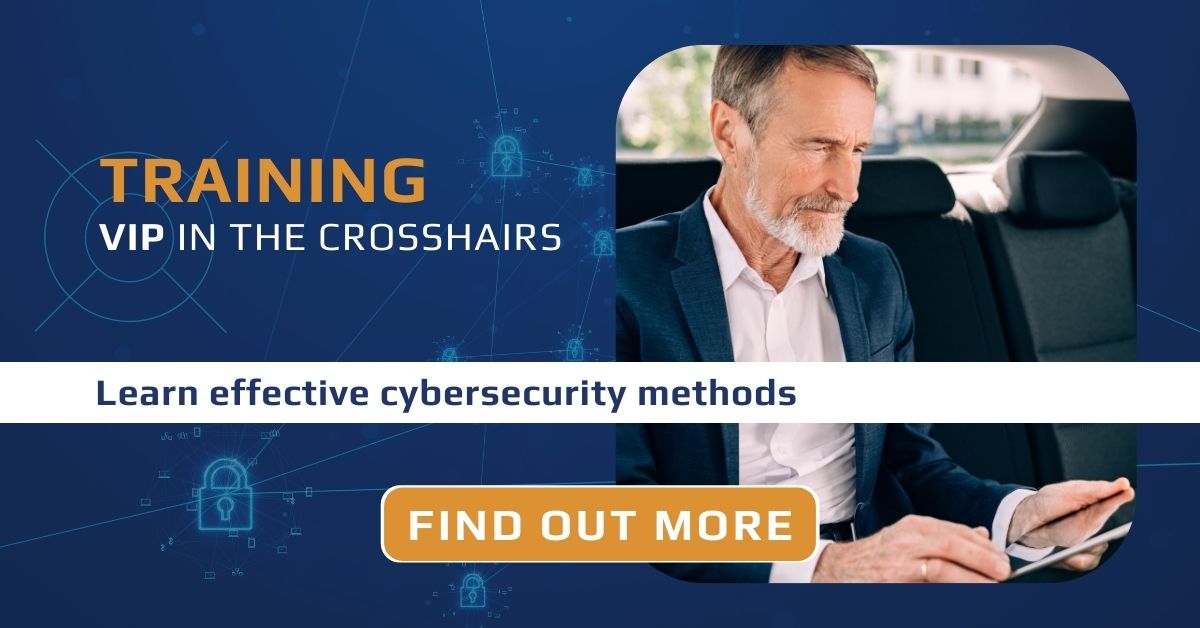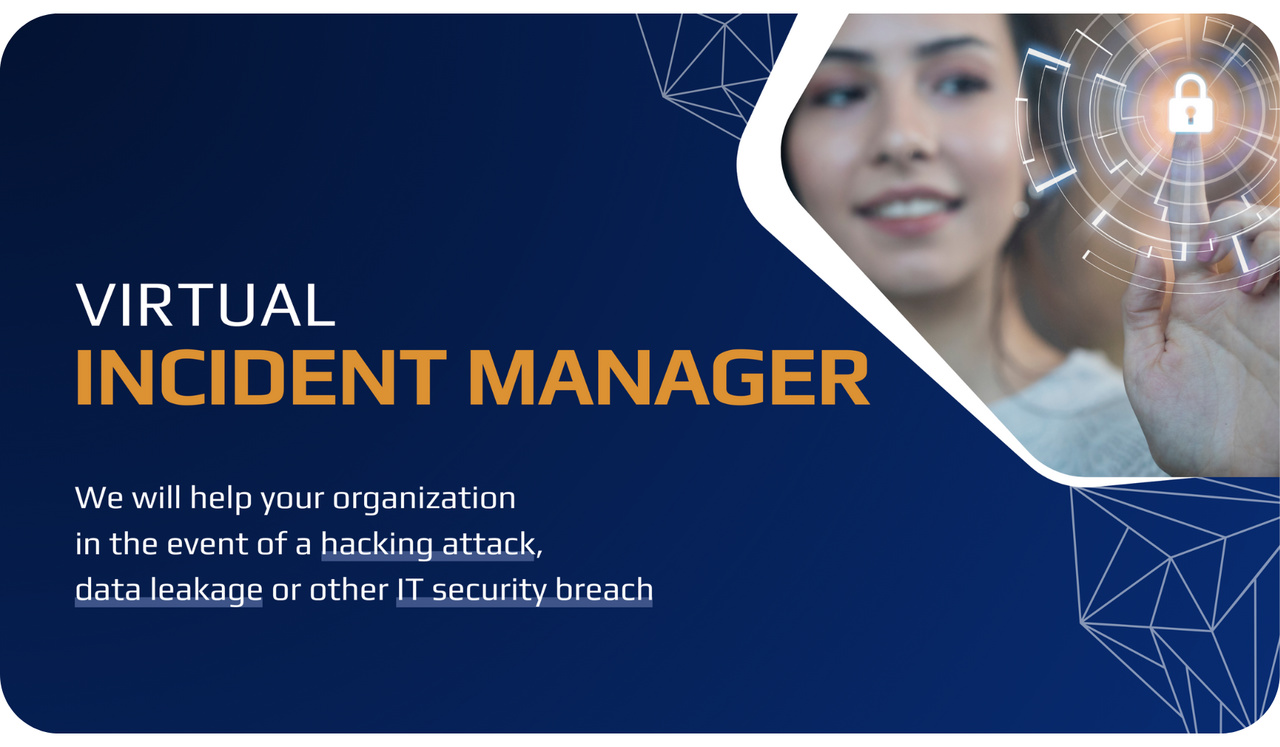Broken ciphers: How do hackers attack VIPs? Examples of cyber attacks on high-profile individuals
People who hold important positions, have influence or wealth are increasingly falling victim to hackers. Cybercriminals use advanced techniques to gain confidential information, extort money, or influence key decisions. The article will present several incidents of privacy breaches of politicians, business people, and journalists, and examine the methods of the attackers.
Hack attacks on high-status individuals, which for the purposes of the article are referred to as “VIPs,” are an extremely attractive target for digital criminals. Corporate presidents and owners possess valuable data that hackers can use to gain financial benefits for themselves or their clients. Cybercriminals attack politicians to weaken their position or discredit them in the eyes of voters. They seek information that will allow them to blackmail or manipulate their decisions. Celebrities and public figures, on the other hand, are vulnerable to attacks aimed at destroying their reputation or causing a media scandal.
Cybersecurity for VIPs is a challenge that they must face themselves to the greatest extent possible. Although it is possible to hire cyber protection experts, ultimately digital activity and habits related to technology use determine the real level of a person’s security.
Who is a VIP for a hacker, meaning who should take special care of their security
The primary targets of cybercriminals are:
-
- CEOs and directors of large corporations
- decision-makers and high-level managers
- entrepreneurs and business owners
- wealthy and influential individuals
- politicians and local government officials
- journalists
- public figures and celebrities
The following examples show how important it is to have knowledge about cyber threats and to follow basic cybersecurity principles.
Phishing attack on Emmanuel Macron
In 2016, during Emmanuel Macron’s campaign for the presidency of France, hackers attempted to weaken his candidacy and influence the election results. The attack began with a phishing campaign, in which emails were sent that appeared to be official correspondence, but actually contained malicious software. The messages were directed not only to the future French president, but also to his campaign staff to increase the chances of a successful attack.
The manipulation mechanisms used by the hackers allowed them to gain access to confidential information, private messages and documents, and possibly to Macron’s bank accounts and other applications.
A vishing attack on a bank manager
In 2020, cybercriminals used voice phishing, or vishing, to carry out an attack on a bank manager in the United Arab Emirates. The hackers impersonated the director of one of the companies that the victim knew well in the professional field.
The fake director informed the victim that his organization was planning to acquire another entity and needed authorization for transfers totaling $35 million. The bank manager received emails from fake individuals posing as a lawyer and director, with instructions for the transactions. Without suspicion, he carried out the requested tasks. As a result, the hackers gained access to the entire amount, i.e., $35 million.
Hacker Attack on Jeff Bezos’ Phone
The case of Jeff Bezos, the founder and CEO of Amazon, shows that even the richest and most influential people are not immune to hacker attacks. Despite being aware of cyber threats and investing in appropriate security measures, Bezos’ mobile phone was hacked in 2018.
According to press reports, Bezos received an infected message with a video file through the WhatsApp messenger. The message was sent from the account of the Saudi Arabian prince – Mohammed bin Salman (but not necessarily by him). The malicious software contained in it allowed the perpetrators to gain access to Bezos’ private data. The stolen information was reportedly to be published on one of the news portals.
Hacker Attack on Jennifer Lawrence’s Virtual Server
One of the most high-profile cases of privacy violation in the world of celebrities took place in 2014. Hackers broke into the iCloud and Gmail accounts of many stars, including Jennifer Lawrence. The perpetrators carried out an attack by cracking passwords and exploiting a loophole in two-step verification systems. In this way, they gained possession of the actress’s private photos, including those depicting her in intimate situations. They then began publishing the photos on internet forums and social media.
Hacker attack on Elon Musk’s Twitter
Elon Musk, the founder and CEO of Tesla and SpaceX, fell victim to a hacker attack on Twitter in July 2020. The criminals used social engineering methods to take over his private account and spread false information about cryptocurrencies, including Bitcoin. In posts, they claimed that the future owner of the app would double the number of Bitcoins for anyone who sent them money.
The attack allowed hackers to scam over $100,000 in Bitcoins from Twitter users who believed in the false information. Within a few hours, Twitter announced that it was a large-scale attack not only on Elon Musk’s account, but also on many other accounts of famous people, including Bill Gates and Barack Obama.
Read also: SIEM – key to ensuring security in the age of cyber threats
The consequences of hacker attacks on VIPs
Cyberattacks on high-ranking, wealthy, or decision-making individuals can have serious consequences for both the victim and the organizations associated with them. These types of cybercriminal activities often lead to:
-
- disclosure of information about:
- private life / compromising events
- financial plans and business activities
- political plans
- damage to reputation and good image
- loss of trust from clients and investors
- weakened political position and public criticism
- identity theft and legal consequences
- fraud and financial losses associated with stolen financial information
- blackmail, and in extreme cases – stalking and life-threatening situations.
- disclosure of information about:
Cybersecurity in your hands!
Proper online behavior, using secure passwords, avoiding suspicious websites and unknown links are just some of the practices that minimize the risk of a cyberattack. It is crucial to have knowledge about cyber threats and the ability to recognize and avoid them.
To achieve this, it is worth taking advantage of appropriate training that will help build the necessary knowledge to maintain digital security. The “VIP on target” training comprehensively equips with the above-mentioned competencies – regardless of the level of technical knowledge and the role of the trained individuals. Our cybersecurity training, prepared by our specialists and practitioners, can be conducted:
-
- for individuals (and their families and co-workers), as well as groups (companies and organizations)
- in-person or online
- in a maximum of 1 hour in a condensed and understandable manner.
Don’t let hackers invade your privacy. Sign up for training and avoid cyberattacks.
I’M SIGNING UP to protect my data





